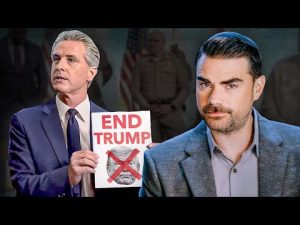In the wake of the tragic school shooting in Minnesota, the community is left grappling with unimaginable loss. A chilling scene unfolded when an armed assailant opened fire at the Annunciation Castle School, leading to the deaths of two young children and injuring 15 others. As a heart-wrenching memorial grows outside the school, questions hang heavily in the air about what could drive someone to such a horrific act. It turns out, the shooter was a twisted individual obsessed with notoriety, as if being infamous was ever going to compensate for a lost soul.
As the families of the victims seek answers and justice, a perplexing veil has been cast over the investigation by none other than the shooter’s mother. With all eyes on her due to her previous employment at the very school her son targeted, one would assume she’d be eager to cooperate. But instead, she’s chosen the route of legal protection. Hiring a criminal defense attorney might be a smart move legally, but it sure sends a curious message to the grieving community and the public. Sometimes reality feels like it’s been scripted by a novelist with a penchant for the absurd.
Now, let’s consider the broader implications. The FBI is calling this an act of domestic terrorism driven by hate, a labeling that raises even more pressing concerns. If we can’t talk to the shooter’s close family, how do we uncover the ideology that fueled such madness? The mother’s absence from cooperation leaves the community in a lurch, longing to understand how this senseless act could have been foreseen, or possibly even prevented. There’s a heavy irony to this situation, where she is positioning herself legally while the mourning parents and community left behind have no recourse for their immense loss.
Across the media landscape, comparisons are being drawn to previous tragedies and the culpability of parents in such cases. It’s understandable that police and the public alike want to know if warning signs were ignored or hidden. After all, if one wants to claim innocence, cooperating with authorities might not be a radical suggestion. It echoes loudly when you say “I have nothing to hide” – all while behind the veils of legal counsel and silence. She may not owe the public a press conference, but transparency with law enforcement would go a long way in showing she’s on the side of moral decency rather than legal safety nets.
Ultimately, the public and parents everywhere have to grapple with this uncomfortable truth: We live in a world where tragedy can be orchestrated by the most unsuspecting individuals. And, as often seems the case with these horrific events, the aftermath is a painful waltz between discovering the truth and the slow grind of legal mechanisms. Whether or not the mother of the shooter chooses to be a part of the solution remains to be seen, but her actions in these critical days will define her in the public eye – not as a grieving mother but as someone willing to stand up for justice, or hide behind the curtain of legal loopholes.







